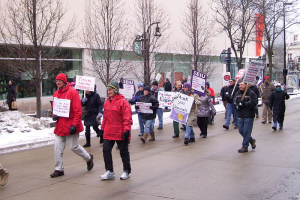 Reading and briefing cases is an important part of the learning process in law school, as discussed in Part 1 of this blog series. In this blog, various Marquette legal writing faculty discuss some of their favorite tips for effective reading and briefing.
Reading and briefing cases is an important part of the learning process in law school, as discussed in Part 1 of this blog series. In this blog, various Marquette legal writing faculty discuss some of their favorite tips for effective reading and briefing.
Professor Rebecca Blemberg
When you have finished reading a case, write down the question or questions the court answered. Then fill in the blanks in this sentence: The court held _______________ because ________________. Even if you’re not entirely sure what the court’s reasoning was, make an educated guess. Then consider the following. Was the court explicit in its reasoning? If so, mark or highlight the explicit rationale for the holding. Is the reasoning implicit? If so, mark or highlight the places where you find the court hinting at its rationale. Are you making an educated guess or “reading between the lines” to find the court’s reasoning? If so, make a list of a few reasons for your educated guess. The reasons can be related to the facts of the case, public policy, language choices by the court, the court’s use of authority, etc.
Look up every unfamiliar word you encounter in a case, especially legal terms. Read with access to a law dictionary. Eventually, you will look up terms far less often.
Professor Jacob Carpenter
One piece of advice I would consider is to read a case at least twice, briefing it only after you’ve fully read it at least once. This may not be as necessary for upper-level students, but for 1Ls, I think it is important. Otherwise, if a person briefs a case as she first reads it, the brief often ends up including extraneous facts and dicta that aren’t helpful to the brief. Once the reader finishes reading the case, the reader often has to go back and cross out chunks of information initially included in the brief. And, the brief often ends up being disorganized. This may be less of a problem now that most students brief cases with their laptops instead of by hand. But, I think it is still helpful.
Also, waiting to brief the case until you’ve already read it allows you to focus more on understanding the case itself during the first read, and then during the second read you can focus on getting the crucial information down into your brief in an organized, concise way. I also think it helps you remember the case better when called on in class or when revisiting the case as you prepare outlines later in the semester.
 Monday, September 17, 2012, is Constitution Day, the 225th anniversary of the signing of the United States Constitution. Do you know which person was the first to sign that document? Test your constitutional knowledge with this quick 10-question quiz. For the text of the document itself, click here.
Monday, September 17, 2012, is Constitution Day, the 225th anniversary of the signing of the United States Constitution. Do you know which person was the first to sign that document? Test your constitutional knowledge with this quick 10-question quiz. For the text of the document itself, click here.

